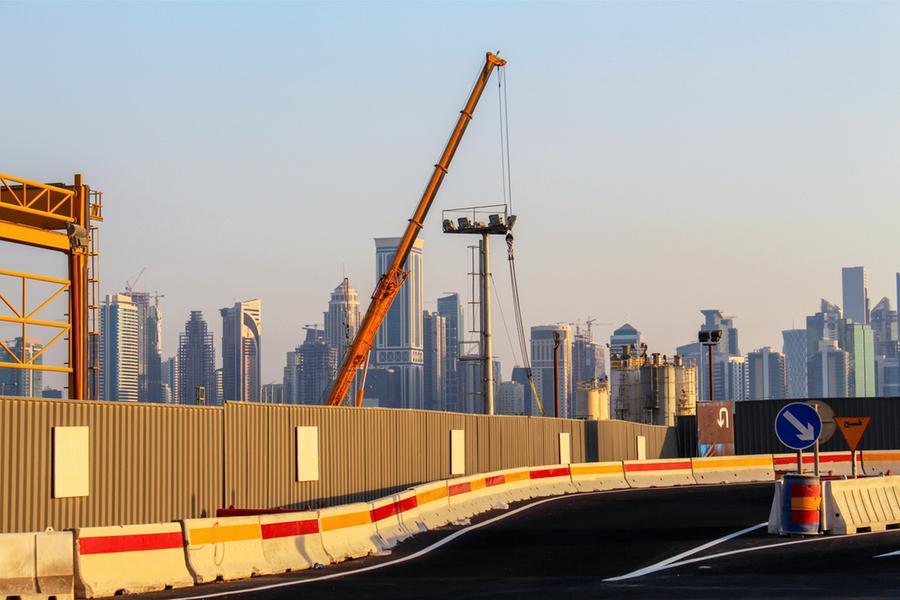Israel’s government advances bill to ban Al Jazeera permanently

The United Nations human rights office and the United States have criticised the shutdown of Al Jazeera’s Israel operation [Getty]
Israel has moved a step closer to making a temporary ban on news network Al Jazeera permanent, according to Israeli media reports, with the ministerial committee for legislation approving a bill on the issue on Sunday.
The temporary measure, currently in place, allows Israel to suspend broadcasts of foreign media outlets for 45 days if they are deemed to cause “significant harm to national security”, while the new bill seeks to extend this provision indefinitely, Haaretz reported.
The bill, which was introduced by far-right Likud MK Ariel Kallner, who had called for a second Nakba in Gaza, would allow the channel’s broadcast to be stopped permanently without the need for a review of another extension.
It needs to be approved by the communication and justice ministries and revised for additional discussions after its first reading in parliament, and before a second vote.
The temporary provision, officially known as the Bill for Preventing a Foreign Broadcasting Organisation from Harming State Security, is currently in effect until 31 July.
Earlier this month, the High Court of Justice gave the state until 5 August to reply to a petition filed by the Association for Civil Rights in Israel challenging the temporary order.
Last month, Israel shut down Al Jazeera‘s operations in the country after a unanimous vote in the Knesset ordering the news outlet to cease its broadcasts in Israel in both Arabic and English.
The ban also saw Al Jazeera close its offices in Israel and its equipment confiscated by police. Access to the network’s website was also blocked from within Israel.
The head of Al Jazeera in Israel and the Palestinian territories described the Israeli government’s move as “dangerous” and motivated by politics rather than professional considerations.
In response to its banning, Al Jazeera said: “This latest measure is part of a series of systematic Israeli attacks aimed at silencing Al Jazeera.”
The Middle East’s largest news network reported that Israel’s action against it included the killing of two network correspondents and the bombing of its office during the Gaza war on 7 October.
Without providing evidence, Israel had accused the two slain Al Jazeera journalists of being “terror operatives” – a claim that the network vehemently denied, stating that Israel was “systematically targeting” its reporters.
In December, Al Jazeera’s bureau chief in Gaza, Wael al-Dahdouh, was wounded in an Israeli strike that killed the network’s cameraman.
The incident followed the killing of Dahdouh’s wife, two of his children, and a grandson in October, after an Israeli strike on their home in the Nuseirat refugee camp in central Gaza.
The United Nations human rights office and the United States have criticised the shutdown of Al Jazeera‘s operations in Israel.
The ban came amid Israel’s wider attacks on press freedom, with its assault on Gaza being the deadliest for media workers in recent history.
More than 100 journalists, almost all of whom are Palestinian, have been killed by Israel in seven months of its war.
Related
Ashghal commences roads, infrastructure development in Birkat Al Awamer
Doha, Qatar: The Public Works Authority 'Ashghal' started the implementation of the Roads and Infrastructure Development Project in Birkat Al Awamer. T
India-Qatar trade agreement must be approached with caution: GTRI –…
India should tread cautiously on a potential free trade agreement (FTA
Qatar’s Ashgal likely to award industrial areas infra consultancy contract…
Qatar’s Public Works Authority (Ashghal) is expected to award the design and lead consultancy contract for the North of New Industrial Area Roads and Inf
Qatar’s $2.5bn green bonds fund enhances renewable energy and infrastructure
Doha, Qatar: Qatar continues to boost its investments in sustainable development, demonstrating its competitiveness on the global stage. An official no












